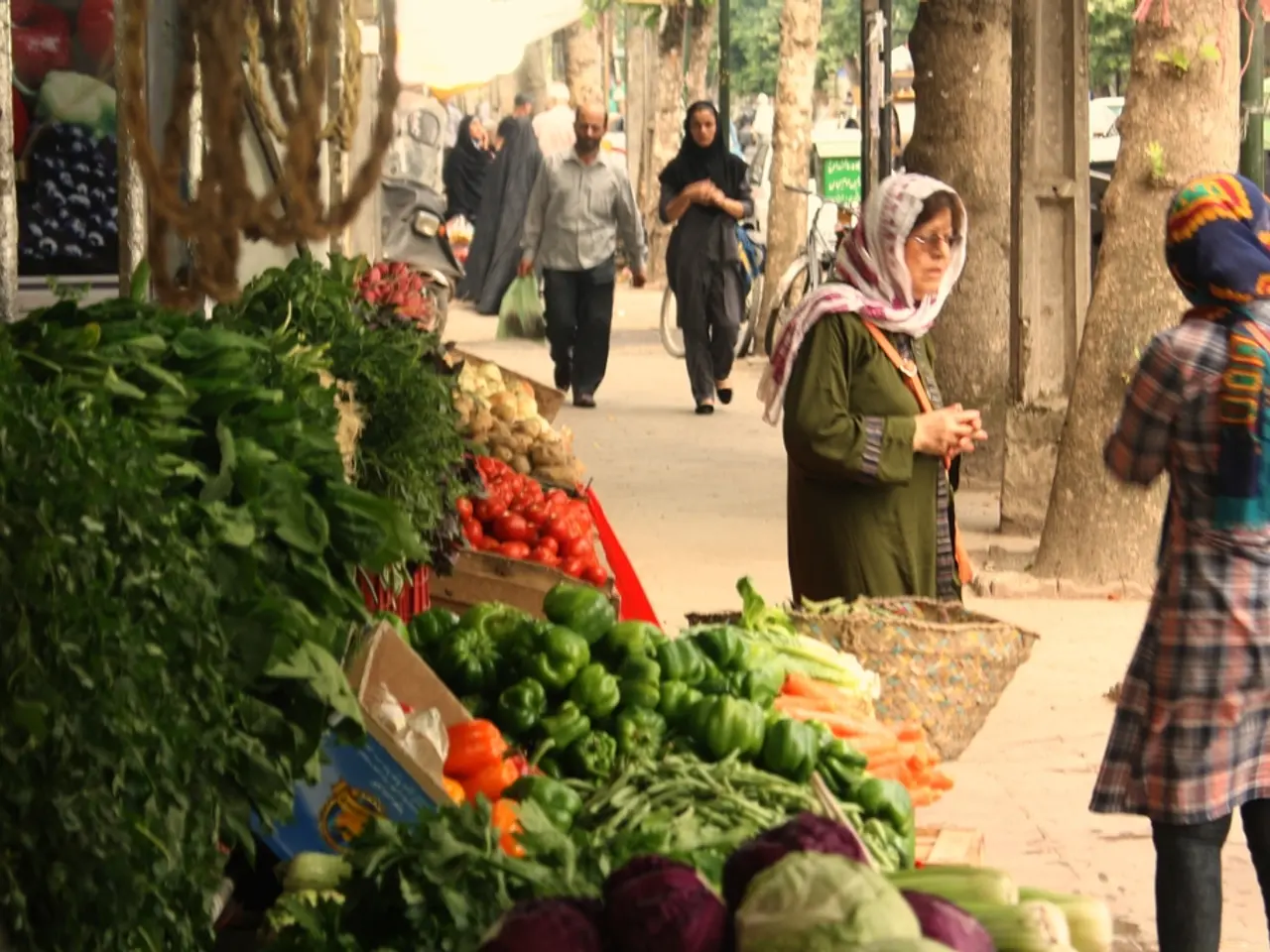Sustainable Eating Trends in India: Insights from the WWF Research Report
In the face of growing global challenges posed by climate change, land degradation, and water pollution, the need for cooperation across nations to ensure food security for a growing population is more critical than ever. This is according to the Dual Challenge Approach, a key strategy that emphasises sustainable agriculture, reducing food waste, advancing bioengineered and smart foods, and directing subsidies towards nature-positive practices.
India, with its long-standing agricultural traditions, offers valuable insights in this regard. The World Wildlife Fund's (WWF) report, 'Solving the Great Food Puzzle', highlights India's move from chemical-based agriculture to traditional farming practices, rooted in indigenous knowledge, as a key strategy supporting local resilience and sustainability.
The hidden cost of these impacts, as per the WWF, is estimated at USD 10-15 trillion, equating to 12% of the global GDP in 2020. Global efforts must, therefore, focus on making food accessible, affordable, and environmentally friendly, with a focus on improving consumption patterns.
India's success in balancing economic development and sustainability sets an inspiring example for other nations. The country's reliance on grains, legumes, and vegetables over animal-based foods significantly lowers its environmental impact. A vegan diet in India can reduce an individual's annual carbon footprint by 1 ton, while a vegetarian diet can reduce it by 1.5 tons.
If other countries were to adopt India's food practices, it would significantly reduce the strain on global resources. By 2050, less than one Earth would be needed to sustain food production if other countries follow India's practices, as suggested by the Living Planet Report 2024 by the World Wildlife Fund (WWF).
The Indian government promotes the cultivation of traditional grains like millet through its mission to support sustainable agriculture and biodiversity, often linked to initiatives such as the "National Millet Mission." Regional initiatives that support sustainable agriculture include community-led seed banks, farmer cooperatives, and local programs encouraging organic farming and the use of traditional crop varieties to enhance climate resilience and food security.
Addressing malnutrition in India has also been a focus, with initiatives like the Mid-Day Meal Scheme (MDMS), Integrated Child Development Services (ICDS), and POSHAN Abhiyaan, which align with the United Nations' Sustainable Development Goal 2 (SDG 2) by improving food security and advancing sustainable agriculture.
India's food production and consumption are influenced by cultural values, a reliance on plant-based foods, and sustainable agricultural practices. The Indian Food Safety and Standards Authority (FSSAI) advocates for healthier, sustainable diets through its Eat Right initiative, aiming to address the global issue of overweight and obesity.
Government initiatives like the Paramparagat Krishi Vikas Yojana (PKVY) and the Mission Organic Value Chain Development in the Northeast Region (MOVCDNER) have strengthened organic farming in India. Sikkim's recognition as a fully organic state in 2016 exemplifies India's leadership in promoting sustainable agriculture.
However, it's not just India that can make a difference. Countries like Argentina, Australia, and the USA were found to have the least sustainable food practices. Transforming food systems towards sustainability is, therefore, essential for a secure and sustainable future.
This data emphasises the importance of transforming food systems towards sustainability, and India's practices offer a promising path forward. By adopting these practices, other nations can not only address climate change and food security but also contribute to a more sustainable and equitable world.
Read also:
- Distinguishing Between Rodent Feces: Crucial Differences for Effective Pest Management
- Discovering an intriguing pastime during my vacation in Jamaica, one that's accessible to all
- Pharmaceutical Marketing's Debated Impact on Medical Professionals' Decisions
- Poorly Controlled Eaton Fire Largely Contributed to Extensive Losses, According to Report







